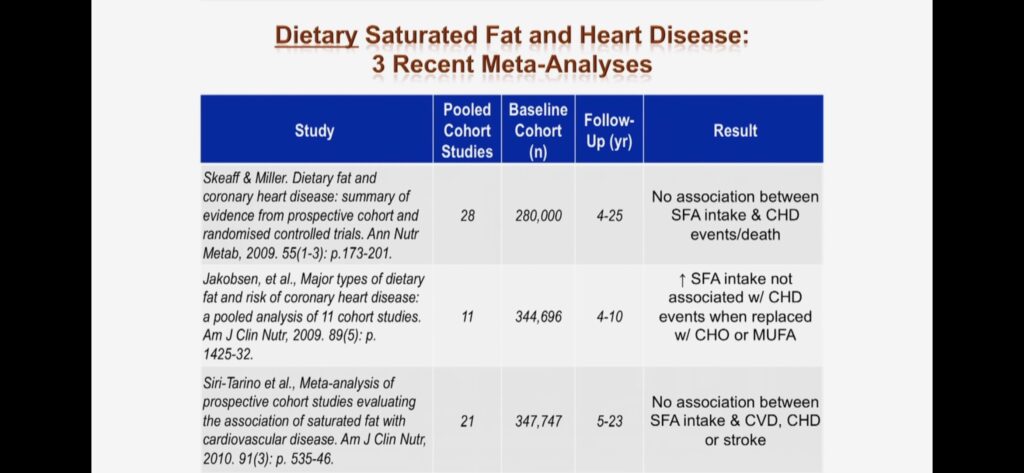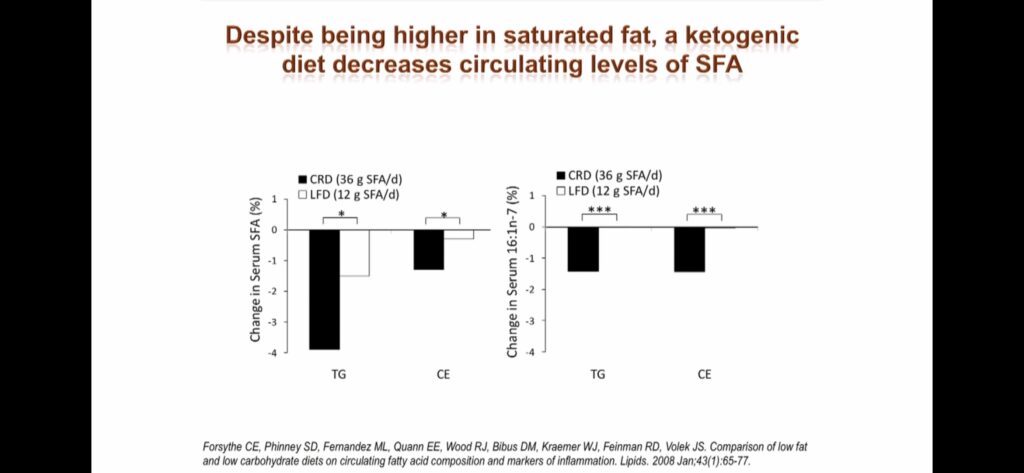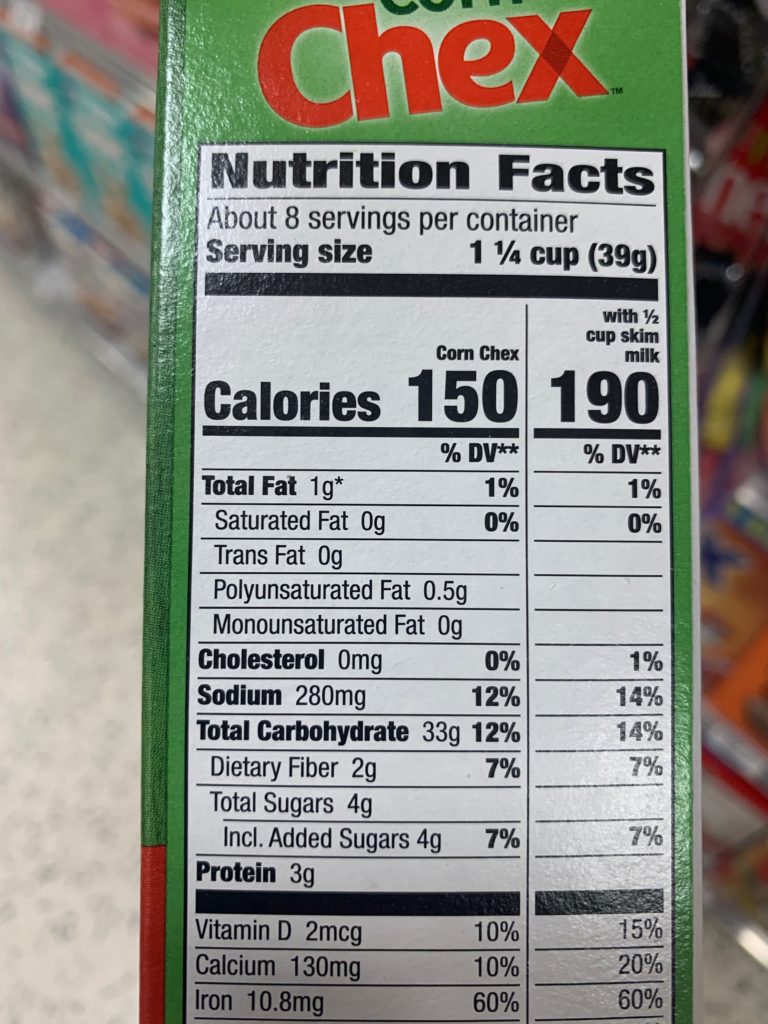It’s understandable you might think dietary cholesterol is bad for you, or that eating too much saturated fat will increase your risk of heart disease or early death.
After all, for about five decades that’s what we’ve been told by governmental bodies and nutritional panels.
So when I suggest that one of the most important keys to a healthy diet, #BodyBabyStep Two, is “Seek Satiety in Filling Fats,” it’s understandable that you might have misgivings.
If eggs, fatty cuts of red meat and the like are filled with “artery-clogging saturated fats,” we should avoid them, right?
That sounds plausible, but the scientific evidence doesn’t support it, as my Health Sherpas would testify.
In this excellent video (embedded below) from the 2015 Low Carb Down Under conference, Professor Jeff Volek of The Ohio State University reviews what the peer-reviewed studies of low-fat vs. low-carb diets have suggested.
I have cued it to begin as he starts discussion of dietary saturated fat and the ketogenic diet, and would encourage you to watch it when you have time. For a quick summary, scroll down below the video player.
Professor Volek’s key points:
- Dietary intake of saturated fat was not associated with heart attacks, stroke or death from cardiac causes, based on three pooled results of 60 cohort studies involving nearly a million total participants (see slide below).

- Increased saturated fat in the bloodstream and stored in body tissues is associated with heart disease.
- The Key: Those stored and circulating saturated fats do not come from the saturated fats you eat, but rather from the way your body processes excess carbohydrates, turning them into fat in your liver.
- Eating more saturated fat as part of a ketogenic diet actually reduces saturated fat levels in your bloodstream.

- Your body metabolizes the saturated fat you eat much differently in the presence of carbohydrates and insulin. With high carbs and saturated fat, you’re more likely to store the saturated fats in unhealthy forms.
There’s lots more detail in the video, and I’d encourage you to check it out in its entirety.
Feel free also to look up the scientific papers he cited, to check his work. I searched for the first one and found the PDF, which you can download if you’d like. Here’s the money quote as I see it:
There is probably no direct relation between total fat intake and risk of CHD. The strongest evidence in support of this judgement comes from the Women’s Health Initiative that showed that CHD risk was not reduced after 8 years of a low-fat diet. The observational evidence, summarised in the meta-analysis, showed no association between total fat intake and CHD risk, although there was heterogeneity between the study results.
Dietary studies are difficult with free-living subjects; you can’t know for sure that people were fulfilling the requirements of their “arm” of the study. Others rely on surveys asking people to estimate what they had eaten over the course of some period. Memories are faulty, and sometimes subjects understate their participation in what might be considered “unhealthy” choices.
The main point is that those who have been telling us saturated fat is dangerous do not have strong evidence to support that claim.
Still, their perspective has governed nutrition policy and what is offered in school lunches, hospital cafeterias and throughout the food ecosystem.
With prevalence of obesity, type 2 diabetes and metabolic syndrome tripling in the last few decades, we’ve clearly been going in the wrong direction .
As far as I’m concerned, the low-fat proponents do not have the evidence on their side, and as you explore for yourself I think you’ll agree.
That, along with the better results I’m seeing personally not only in weight loss and improved vitality but also lowered blood pressure and triglycerides and increased HDL (the “good” cholesterol), makes me confident low-carb is most effective for most people.
At least for the two-thirds of Americans who are currently overweight or obese.
We have to do something different, right?
If you think your friends might find this post helpful, I hope you’ll share by email or on your social networks using the buttons below.
To get these updates on a regular basis you can subscribe by email, or follow me on Facebook, Twitter and LinkedIn, where I’ll also be posting links.
Check out My Health Journey and my #BodyBabySteps.

